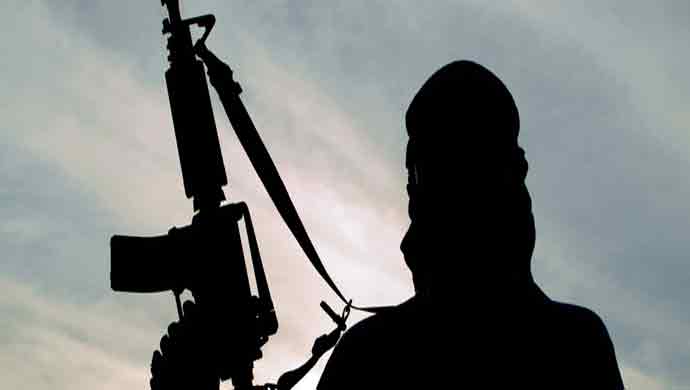By Moharram Fouad
Terrorism and corruption have negatively influenced the world’s economy in general and the developing countries’ economies in particular. Tourism was the first to drop; production processes have slowed down and exported slided. Facing such corruption and terrorist attacks force countries to allocate a large sum of its income to fight them, instead of spending that money on developing the infrastructure by investing in new projects. Furthermore, the world’s economy witnessed a slowdown in financial transactions among countries and among investors. Thus, investors are forced to go away with their capitals to stable countries in order to get away from terrorism. Consequently, terrorist attacks weaken official markets and boost the black market which results in hindering development and corrupting the infrastructure. Giving to the growing number of terrorist attacks, reformation of economy is getting harder. In addition, governments are hesitant to take any genuine steps to reform their economies. Terrorist attacks have exceeded 4900, resulting in over than 33 thousand deaths, according to Maryland latest studies.
Statistics of National Consortium for the Study of Terrorism and Responses to Terrorism (START) say that 13 per cent of terrorist attacks resulted in 26 per cent deaths. In 2013, more than 33 thousand persons died, 41 thousand persons were injured and 11 thousand abductions took place because of these savage attacks. In 2014, 1600 Iraqi soldiers were abducted and killed in Tikrit; it is the most savage terrorist attack that could take place in any country. Moreover, 80 per cent of these attacks take place using bombs and 16 per cent use firearms.
START listed 30 organisations working for Isis, taking from the world’s database. Furthermore, over than 150 thousand terrorist attacks took place since 1970.
Researchers say that the first attack to take place was in October 2002 when Laurence Foley, an American diplomat, was assassinated in Jordan by a terrorist organisation headed by “Abo Mosab Al-Zarkawy”. This organisation has become what’s called today Isis. By the end of 2013, Isis had executed roughly 46 attacks per month; this number increased to 106 attacks by 2014 and then decreased to 102 attacks per month by 2015. Between the period of 2002 and April 2013, 95 per cent of terrorist attacks were conducted by terrorist organisations other than Isis such as Al-Qaeeda and Islamic State of Iraq.
Although, statistics concerning the number of foreigners who join such terrorist organisations are not accurate, Sufan group studies say that the number of these foreigners who join such organisations has increased in the last four years. 27 thousand to 31 thousand foreigners from over than 86 countries travelled to Syria and Iraq to join these organisations.
According to Sufan’s study, third of those who join terrorist organisations come from Africa, quarter of them are from Asian and less than a quarter come from Europe.
As for the origins of those who join terrorist organisations, Tunisia comes first, followed by Saudi Arabia, Jordan and Turkey with 1000 terrorists coming from each. Morocco, Lebanon, Egypt and France follow the precedent countries with less than 1000 terrorists coming from each. Since 2011, Germany started to have the same numbers of terrorists as Egypt.
In Asia, countries such as Chechnya, Dagestan, Afghanistan, Iran and Gulf countries have large numbers of those who join terrorist organisations.
As mentioned, Tunisia has become a fertile land including the largest number of Isis members as 6 thousand Tunisians have joined terrorist organisations and 5 thousand terrorists were held by the Tunisian authorities.
As for Libya, its chaotic situation is fueling terrorist attacks and attracting terrorists and extremists, coming from all countries such as Tunisia, Iraq, Jordan, Somalia, Syria and Sudan. Countries around the world are exerting efforts to fight terrorism. For instance, Germany suffered from a terrorist attack done in a train by a17 years old boy that is likely to be from Afghanistan; he used an ax during his attack which resulted in 5 injuries. Another terrorist attack took place during a musical concert which resulted in its doer’s death and 15 injuries. These attacks made the German Minister of Interior take steps to drive away asylum seekers that could represent a threat to the public security.
In France, François Hollande rejected the calls of right parties and far-right parties to make counter terrorism laws much strict. He believed that the laws of 2015 are sufficient to counter terrorism, adding that restricting freedoms in France will not help fighting terrorism; instead it will have a negative outcome.
In Italy, the Police have arrested 2 Moroccan citizens under the suspicion of handing out leaflets that support Isis.
As for Spain, Spanish authorities arrested 2 brothers under the suspicion of financing terrorist organisations that work for Isis. The two suspects were found to have used fake identities to send money to Isis in Syria and Iraq; it has been believed that their third brother was killed during his battles alongside Isis.
Russian authorities have found a brilliant solution to the problem of terrorism. They would force the family of the terrorist to pay for all losses caused by him. This is a great example on the means of countering terrorisms; there are effective methods to counter terrorism other than taking security procedures and making laws more stricter.
Regarding Switzerland, Geneva Police sent their forces to Cointrin Airport after receiving information from the French Police about the possibility of bombing to take place there. Geneva Police posted on its Facebook page that security procedures have been taken in the airport to prevent any bombings.
Twitter has announced that 250 thousand twitter accounts that post terrorist supportive posts, have been suspended over the last 6 months. Since the half of 2015, Twitter has suspended 360 thousand accounts. to be continued.


